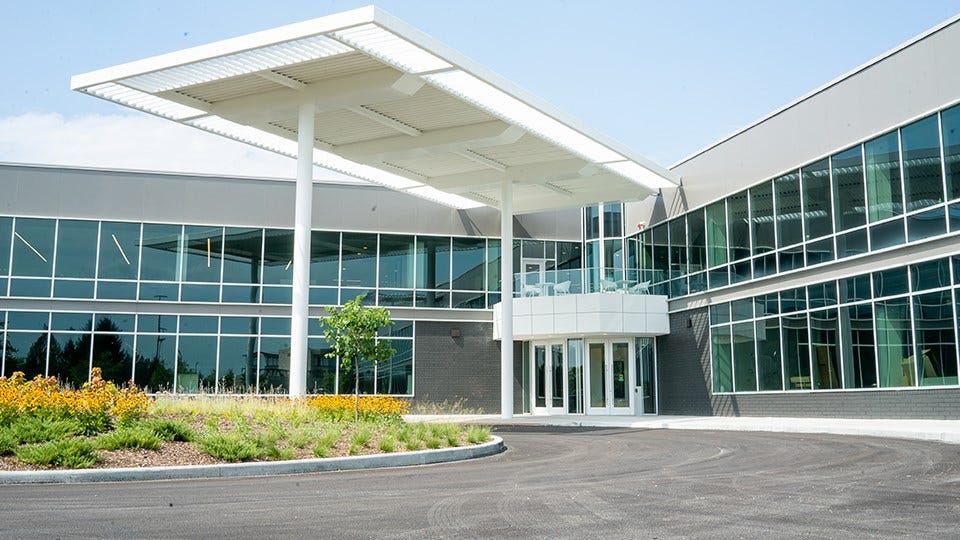Covid Response, ‘Nimble’ Nature Spark Quantigen Expansion
 (photo courtesy of Round Room)
(photo courtesy of Round Room)
Subscriber Benefit
As a subscriber you can listen to articles at work, in the car, or while you work out. Subscribe NowHoosiers may not realize a homegrown Indiana startup played a pivotal role in creating the at-home COVID-19 test kits now on store shelves. The White House recognized Fishers-based Quantigen in 2020 for its ingenuity and key role in the development of the cotton swabs inside the self-administered kits. The work is just one milestone for the specialty contract research organization, which plans to double its workforce and invest $2.5 million to relocate to a bigger home in Fishers. The high-tech facility will power a long list of projects for Quantigen, including its next goal to validate a Covid testing system that could process one million samples per day.
As a specialty CRO, Quantigen partners with big box biotech companies to complement their in-house research and development groups “that are set on really big, long-term product development efforts that consume a lot of their R&D time and focus,” says Quantigen Chief Executive Officer Jami Elliott.
“But there are lots of opportunities for a nimble company to support and help those development efforts,” says Elliott. “What we do is work that complements their model, and other large CROs’ model. Oftentimes, we’ll do the heavy lifting development work that may not be what the large CROs want. We like to take on a variety of problems; some are big and hairy; some are small and quick.”
That nimble nature powered the development of self-administered COVID-19 tests that are now commonplace, but were groundbreaking in the spring of 2020.
“The Gates Foundation came to us with two problems,” says Elliott. “The first was, ‘Wow, these deep nasal swabs that hurt like hell and have to be administered by a doctor or nurse—that won’t support the volume of testing that we need,’” says Elliott. “So we went through a rigorous process of showing that a sample collected just by doing a simple swipe around the lower part of your nose—that was painless and self-administered—yielded as good a result as if we jabbed you in the brain with a nasopharyngeal swab.”
Additionally, the swabs used for the nasopharyngeal tests are complex and can’t be manufactured in high volume, so the foundation tasked Quantigen with finding a solution. Through a partnership with U.S. Cotton, the largest manufacturer of cotton swabs, Quantigen extensively evaluated various types of spun polyester swabs.
“These are simple [swabs] that would look like a Q-tip to most folks. We validated that those also collected an equally excellent, valid sample as the more complicated, hard to manufacture swabs,” says Elliott. “By doing that, we opened the door for high-volume manufacturers that were making things like Q-tips to make swabs in volume, so we opened up a huge floodgate.”
By providing the scientific data to the FDA, Quantigen opened the door for companies to produce at-home test kits en masse.
As the pandemic presents no shortage of obstacles, the next challenge looms large. The foundation has also given Quantigen a $5 million grant to partner with a large agricultural company to develop a Covid testing process that could analyze 1 million samples per day. The team believes processes agricultural companies use to genetically test crops for quality control could be translated for Covid testing.
Beyond Covid-focused projects, the company is also working to commercialize a novel pharmacogenetic test that could change how doctors prescribe medications; a simple cheek swab will analyze a patient’s genetic information to uncover which medicine will be the most effective on that specific person. And another project is underway to develop a tongue swab tuberculosis test for middle and low-income countries.
The company’s eclectic list of projects has sparked significant growth; Quantigen recently announced it will double its current workforce by creating up to 23 jobs, as well as relocate and expand its headquarters to the Round Room building, which opened last week. Elliott says “the beautiful, bespoke facility” which was the former home of Roche Diagnostics “feels like almost a karmic fit.”
Quantigen’s announcement is among a string of recent wins for Fisher’s burgeoning life sciences sector; the city says recent investments from Stevanato, INCOG BioPharma and Genezen total more than $200 million and about 400 new jobs.
From at-home Covid test kits at the neighborhood grocery to tuberculosis tongue swabs in low-income countries, Quantigen will have a new nerve center as it nimbly takes on challenges, and Elliott says, “We just can’t wait to get in.”
Elliott says he is “a hard-core evangelist” for R&D investment in the Midwest.
Elliott says the small tube developed for the at-home Covid tests enabled the next chapter—creating a Covid testing process that can analyze 1 million samples per day.
